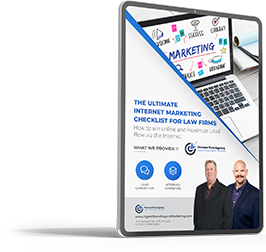
Like all businesses, running an insurance agency has its risks. From personal to client risk, it is impossible for agents to perceive all that can go wrong in their line of work. Furthermore, spending too much time pondering disastrous scenarios is not healthy. There are some risks that cannot be ignored. They must be faced head on if you are to protect your business and the clients you serve.
Knowing, assessing, and safeguarding against common risks helps to avoid surprises and mitigate any negative impact on insurance agencies. So, the question is, how insulated are you from risk?
What Risk Management Means to Insurance agencies
The business dictionary defines risk management as “the identification, analysis, assessment, control, and avoidance, minimization, or elimination of unacceptable risks.” Following that definition, it should be clear that proactive steps are necessary to tackle risks. It is not sufficient to simply wait until they surface; by then it is probably too late to avoid negative outcomes.
Of course, taking proactive steps to control and eliminate risks is easier said than done. The first step to proper risk management, however, is to review operations and identify areas of vulnerability. By identifying problem areas in your business, it is possible to see the potential risks with greater clarity.
Productivity Risks
Insurance agencies generally rely on a small team of staff to keep the business thriving. Your employees help ensure that things like the sales pipeline is kept full, telephone inquiries are handled efficiently, and important administrative tasks are tackled. In short, each member of staff is critical to the running of your agency.
But what happens if you lose one or two of those employees? Are you able to fill the gap quickly and without interruption to the normal flow of business? Replacing key members of staff is not an easy process. One of the biggest risks to insurance agencies is having a lack of trained, capable employees.
To avoid the potential negative impact associated with key staff members leaving, you must develop a suitable hiring and training plan. A training plan enables you to quickly produce staff that can start contributing to agency operations quickly and effectively.
Rather than trying to find candidates that match a specific criterion, you can pick from a broader pool of capable individuals and then put them through your training program. You can control the training program to produce staff with a specific set of skills suitable to your agency’s needs.
You also need to establish a ready pool of candidates from which to choose from. Even if you don’t anticipate taking on new staff soon, it can be beneficial to maintain contact with local high schools, attend local job fairs, and strike up friendships with business schools. All of which will provide a healthy resource of candidates to choose from, thus negating the risk of your agency grinding to a halt due to lack of staff.
Adaptivity Risks
Prospect and client needs are always changing. Thus, to maintain a successful insurance agency, there must be a healthy degree of adaptability built into the business. Unwillingness or insensitivity to change can ultimately lead to a loss of clients. People are likely to find a newer, fresher agency more appealing.
Adaptability means the ability to respond quickly to market demands. One example of that is technology. Many people these days are highly tech savvy. More than that, they use technology to conduct business, their social life, and their education. If your agency lacks technological sophistication, your business is probably at a disadvantage.
Change happens swiftly and often without warning. But, there are ways to guard against the risks and keep your agency relevant: Cultivate an agency culture that embraces change; maintain a flexible business model that can be quickly adapted to meet market requirements; think of technology as an investment rather than an expense.
{{cta(‘7267e964-fe68-49b5-b154-749a7cb89f30′,’justifycenter’)}}
Technological Risks
It might seem like a huge unnecessary expense, but at some point, you will have to address your outdated computer systems – and sooner rather than later. These days, it is more important than ever to keep on top of technological changes. Not only could outdated systems slow your agency’s processes, but it could also cause unnecessary security risks.
In addition to ensuring that your equipment is up-to-date and capable, there is also the issue of maintenance. Even new technology, if not secured and properly maintained, can pose a huge risk for your business. Technology can be hugely beneficial to agency operations, but it also comes with a multitude of risks.
The recommended approach is to set aside time and money for the all-important technological side of your business. Implement important security features, carry out proper backups and ensure you are not using severely outdated systems. Much of this work can be handled by a tech support department. That does not mean you must set up your own IT division. This function can be outsourced to capable tech support teams.
In the End
The benefits of proper risk management for your insurance agency are numerous. You must develop a risk management strategy that is built into your business plan. That will help to save your agency valuable time, economic resources, and prevent legal liabilities. No business is impervious to risk, even those with “insurance” as part of their business name.
Protect your livelihood and your clients by creating a solid action plan to identify, analyze, and avoid potentially damaging risks.





